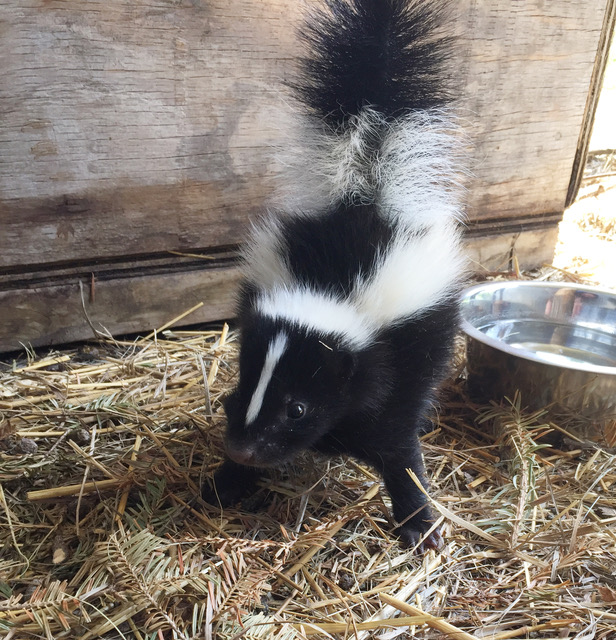After a late spring, dozens of baby wildlife have been brought in to the Alberta Institute for Wildlife Conservation (AIWC) in recent weeks.

Many species of birds, including goslings and ducklings, along with infant squirrels thought to be orphaned were admitted to the Madden, Alta., facility. Four baby skunks are also being cared for.

Although people may be well intentioned, officials said babies are being needlessly rescued and are often better off left alone.
“We are no match for their natural parents and there’s a lot of resources that go into these animals. We want to put donations where they are needed most, the truly orphaned and injured animals,” AIWC executive director Holly Duvall said.
“We don’t want to be taking babies away from their parents.”

Some species of mammals are often left alone during the day for good reason, Duvall said, adding they wind up in their care despite showing no signs of being injured or orphaned. They refer to them as being “kidnapped.”
“Baby hares and baby fawns are born without a scent to protect them from predators,” Duvall said. “The mother leaves them alone for the majority of the day and the babies hunker down in the grass and are left by themselves, fending for themselves, until the mother gets back.”
This season the facility is expecting to receive more than 1,000 different wildlife babies to its facility.




Comments